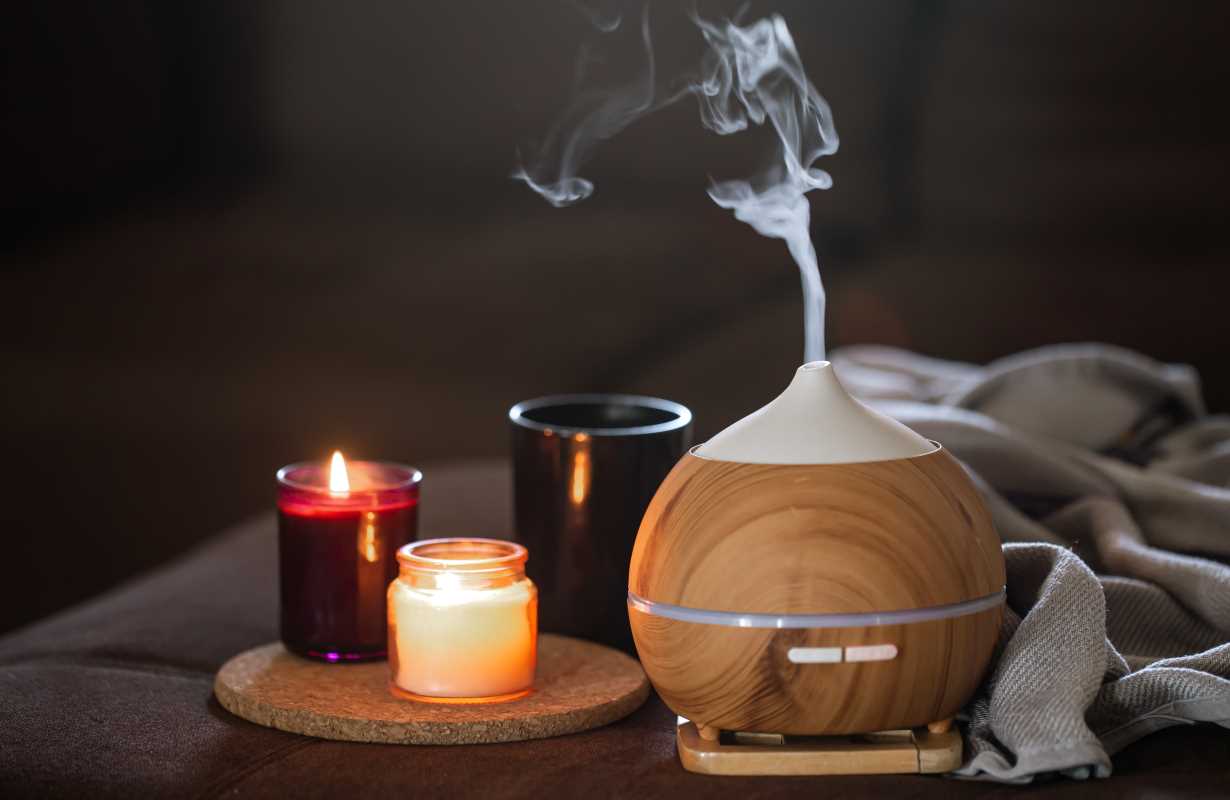Trouble drifting off to dreamland or waking up throughout the night can really affect how you feel and function day-to-day. Aromatherapy steps in as a gentle ally, offering a natural and personalized way to enhance your sleep experience. By using essential oils, you can craft a soothing atmosphere that helps you relax and unwind. Tailoring a bedtime routine to fit your unique tastes and needs not only transforms your nights but also boosts how you feel when morning comes. With this approach, you can find yourself waking up more energized and ready to embrace the day ahead.
The Science Behind Aromatherapy and Sleep
Aromatherapy utilizes essential oils to influence your mood and physiological state. When you inhale the aromas, they interact with the olfactory system, sending signals directly to the brain's limbic system, which controls emotions and memory.
- Reduces Stress and Anxiety: Certain scents like lavender and chamomile lower cortisol levels, the hormone associated with stress.
- Promotes Relaxation: Oils such as sandalwood and bergamot create a soothing atmosphere that prepares your body for sleep.
- Enhances Mood: Essential oils elevate your mood, making it easier to unwind and let go of the day's worries.
- Improves Sleep Quality: Regular use of aromatherapy leads to deeper, more restful sleep by maintaining a balanced sleep cycle.
Choosing the Right Essential Oils for Sleep
Selecting the appropriate essential oils is crucial for creating an effective aromatherapy routine. Consider the following oils, each known for their unique benefits in promoting sleep:
Lavender is perhaps the most popular choice, celebrated for its ability to reduce anxiety and improve sleep quality. Its gentle, floral scent creates a calming environment conducive to relaxation.
Chamomile offers a sweet, apple-like aroma that soothes the nervous system. It's particularly effective for those who experience insomnia due to stress or overthinking.
Sandalwood provides a rich, woody scent that grounds the mind and body. It's excellent for creating a peaceful sanctuary in your bedroom, free from distractions.
Bergamot has a citrusy yet spicy fragrance that lifts the mood while promoting relaxation. It's ideal for those who need a balance between emotional uplift and calmness.
Creating a Personalized Aromatherapy Routine
- Identify Your Sleep Challenges: Determine whether your sleep issues stem from stress, anxiety, or other factors. This will help you choose the most effective essential oils.
- Select Your Essential Oils: Based on your challenges, pick oils that target your specific needs. Mix and match to find combinations that resonate with you.
- Choose a Delivery Method: Decide how you want to use your oils. Options include diffusers, topical application, or adding a few drops to a warm bath.
- Set a Schedule: Incorporate aromatherapy into your nightly routine at the same time each evening to create a consistent pattern that signals your body it's time to wind down.
- Adjust as Needed: Pay attention to how your body responds and make adjustments to your routine. You might need to try different oils or methods to find what works best for you.
Incorporating Aromatherapy into Your Nightly Ritual
Creating a seamless integration of aromatherapy into your bedtime routine enhances its effectiveness. Start by setting up your chosen delivery method, whether you fill your diffuser with the selected oils or prepare a relaxing bath with a few drops of essential oil.
Establish a pre-sleep activity that complements the aromatherapy, such as reading a book, practicing gentle yoga, or meditating. This combination signals to your body that it's time to relax and prepare for sleep. Over time, these consistent actions reinforce a positive sleep environment, making it easier to fall asleep and stay asleep throughout the night.
Common Mistakes to Avoid
- Overusing Essential Oils: Applying too much oil can lead to headaches or irritation. Start with a small amount and adjust as necessary.
- Using Low-Quality Oils: Invest in pure, high-quality essential oils to ensure maximum benefits and avoid harmful additives.
- Inconsistency: Sporadic use of aromatherapy can diminish its effectiveness. Stick to your routine to see the best results.
- Ignoring Personal Preferences: Choose scents that you genuinely enjoy and find relaxing, as personal preference plays a significant role in the effectiveness of aromatherapy.
Creating a personalized aromatherapy routine with the right essential oils can enhance sleep quality by establishing a soothing bedtime environment. Understanding the science and avoiding pitfalls will help you enjoy restful nights.







